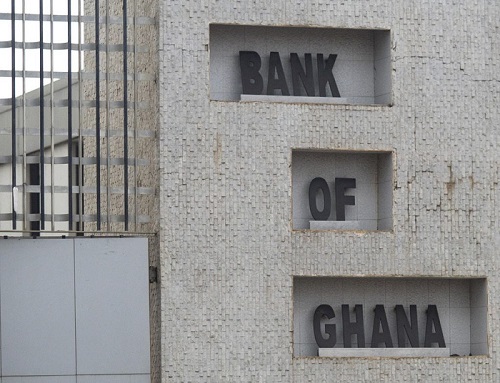The Monetary Policy Committee of the Bank of Ghana has, for the first time since May 2018, hiked the policy rate by a 100 basis points, citing inflationary pressures as the main reason. Inflation for October climbed above the medium-term target band of 10 percent, as it recorded 11 percent, the highest since July 2021.
A press statement released by the Monetary Policy Committee indicates the central bank expects inflationary pressures to worsen, given both prevailing and anticipated global and domestic conditions, hence, its decision to raise the policy rate to 14.5 percent till, at least, end of January 2022. The decision is the first time in almost three and half years the central bank has hiked the rate, as it has consistently either reduced or maintained it.
“Headline inflation has risen consistently from the low of 7.5 percent in May 2021 to 11 percent in October driven by both food and non-food price increases. In addition, all the bank’s core measures of inflation have increased, indicating broad-based underlying inflation pressures, with the potential of de-anchoring inflation expectations.
Currently, headline inflation is above the upper limit of the medium-term target band and the Committee noted significant risks to inflation’s outlook. These risks include rising global inflation, high energy prices, uncertainties surrounding food prices and investor behaviour.
The Committee further noted that these elevated inflationary risks, require prompt policy action to re-anchor inflation expectations to safeguard the central bank’s price stability objective. Given these considerations, the Committee therefore decided to raise the policy rate by 100 basis points to 14.5 percent,” the statement said.
Commenting on the decision, Director of the Institute of Statistical, Social and Economic Research (ISSER) at the University of Ghana, Professor Peter Quartey, said he is not surprised the Committee made the decision, given the exchange rate and inflationary pressures do not make it favourable for a cut of the policy rate.
“It doesn’t come as a surprise at all. If you look at the inflationary expectations and also development in the exchange rate, there have been some movement and that has to be curtailed. So by increasing the rate is to basically mop up excess liquidity in the system and reduce further increase in inflation,” he said in an interview with the B&FT.
Asked about his opinion on whether the decision was ill-timed, considering concerns have been raised recently about high lending rates – as a hike in policy rate automatically translates to lending rate – Prof. Quartey said controlling inflation, for now, must be prioritized by the central bank over anything.
“It is certainly going to translate into an increase in commercial banks’ rates and that is basically to reduce money supply in the system, otherwise it might cause further inflation. We have to look at it from the balance of things. If inflation expectations are high, you try to curtail it now because higher inflation is not good for the private sector. They cannot plan because their cost of production keeps changing. So anytime there is inflation, you have to arrest that inflationary tendency and this [policy rate] is one of the tools available to the central bank,” he said.




